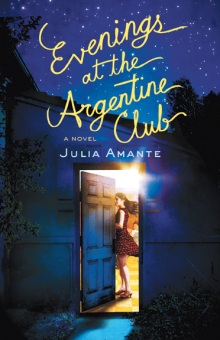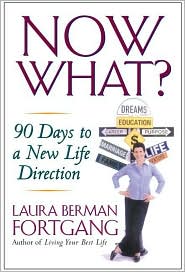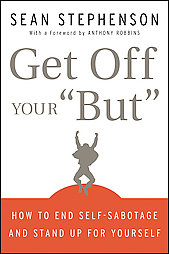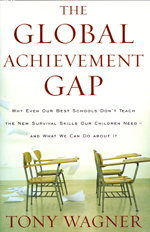
This book is pretty straightforward. The title, “How to Achieve Heaven on Earth: 101 insightful essays from the world’s greatest thinkers, leaders and writers” pretty much says it all. It’s a great compilation and one of those books you will probably walk away from feeling a little more enlightened.
The essays seem to have been carefully chosen and it only takes about 5 minutes to read each one, so it’s a nice book to pick up in between tasks during the day, (this is a nice way of saying, it makes good bathroom reading.)
You may find yourself dog ear-ing your favorite essays to refer back to later. (For those who use only book marks and get angry with people like me, my apologies for the bent triangles in the corners of your pages.)
Here is an excerpt I have been authorized to share. Enjoy!
—
American Ingenuity in the Innovation Age
by John E. Wade II,
Editor of How to Achieve Heaven on Earth: 101 insightful essays from the world’s greatest thinkers, leaders and writers
We are currently in the innovation age as demonstrated by the fact that humankind’s knowledge is doubling every ten years, and probably more so in technology. America can thrive in an age like this. Why? Let me give you ten good reasons.
America is a nation of immigrants who came here for a better life for the most part. Therefore they have the genes to initiate changes in business, education, computers, the Internet and practically all the fields of human endeavor that require reason.
America has a wonderful system of secondary education which can hatch ideas of all sorts from biochemistry to ecological science to anthropology. You name it and somewhere in the country there is a secondary school or schools that can make you proud.
Social entrepreneurs are a new area catching on as demonstrated by Nicholas Kristof’s wonderful article, “The Age of Ambition.” Kristof writes about how the young people who are engaging in start-up enterprises like Teach America are revolutionizing whole industries, not just teaching people to fish. He calls this phenomenon “the 21st-century answer to the student protestors of the 1960s.” He writes about colleges who are now offering classes in social entrepreneurship. It is my ambition that Soldiers of Love, which will receive half my royalties from How to Achieve a Heaven on Earth, will become a leading charity within the age of ambition.
While I hesitate to point to our government as a leader in innovation, our democracy does have a resilience and ability to change without violating our basic formula of capitalism tempered with democracy.
We are in tough economic times but we have the ability to innovate, worker by worker, company by company, and ultimately even within local, state and federal government. Thus, I believe we will prosper in this age of new ideas. If times were really good, we would not have to change careers or search for new jobs or endeavors. In my own case, I am much happier and fulfilled as a self-employed author, investor and philanthropist than the later part of my career as a certified public accountant with the government. During my 29-year career as a CPA in public accounting, private accounting and government accounting I lost my job a number of times and had to come up fighting for another job, at times within bad economic surroundings. Now I am in a life fulfilling career that only became my calling a few years ago. I am now 64. Life is a pursuit that requires continual growth, especially in the Innovation Age.
Wisdom is something that can be gained through reacting to negative life experiences in a positive manner. There are two essays in the book related to
wisdom, “The Centrality of Wisdom” and “We Urgently Need an Academic Revolution.” These explain the nature of wisdom and how it can and should be taught. Wisdom is the combination of knowledge, values, problem solving, imagination and resilience that can make a real difference in how one approaches adversity in times such as this.
While it might not come to mind right away, we are all made up of mind, body and spirit and it is important to change and innovate in all these areas over time as situations evolve slowly or overnight such as a job loss. Healthy diet and exercise are to a great degree within our own control. In almost everything we do, self discipline is a given for the optimum result. That’s a tough call when you loose your job, your spouse, anything or anybody that’s important to you. But we must cope regardless of the challenge. Story after story in this book tells of successes such as “With Sobriety Anything is Possible” by Todd Crandell who went from a thirteen year struggle with drugs and alcohol to founding a nonprofit foundation to cure or prevent addiction through a lifestyle of fitness and health.
We can even innovate in sex. Stella Resnick writes about how ” . . . lack of sex in marriage is a reliable measure of whether or not the relationship will last.” She says the lack of desire among both men and women in sex is the most important sexual problem in America. This is where couples can innovate on their own and improve their lives whether they are employed or not. It may be more difficult, or it may provide a diversion from the other difficult circumstances faced.
We can innovate with expanding our horizons in racial attitudes, both emotional and intellectual bias. Just look at Martin Luther King, Jr.’s speech abstract dated August 16, 1967 (“Where Do We Go From Here?”)and you will be amazed how far America has traveled along the road to racial harmony. We have elected an African American president. But we must continue to innovate, and I’m speaking about racial attitudes in all directions from all sources.
We can innovate in our own personal fiscal habits. This means such things as knowing what you own and financial literacy in general. I prepare a brief net worth statement practically every day. Perhaps that’s obsessive, but my father, who was a superb investor, followed his stock, AFLAC, and a few other much smaller holdings on a daily basis. I find this distressing at times and sometimes I outsmart myself. But investing is a growing, lifelong pursuit which I would encourage in so many people who are not in poverty and have sufficient monetary assets (generally 4 to 6 months of expenses) and have maximized there tax deferred (401(k) or IRA) plans. I must explain that I am an independent investor, not a trader.
Follow your dreams, but don’t quit your day job until you can really plan a prudent way to navigate your way to fulfillment of your next niche, a niche that will probably evolve in fits and starts over time.
Copyright © 2010 John E. Wade II, editor of How to Achieve Heaven on Earth: 101 insightful essays from the world’s greatest thinkers, leaders and writers
Author Bio
John E. Wade II, editor of How to Achieve Heaven on Earth: 101 insightful essays from the world’s greatest thinkers, leaders and writers, is an author, investor, philanthropist, and founder of the nonprofit organization Soldiers of Love. An active member of his church and civic organizations in his area, Wade holds an M.A. from the University of Georgia and has worked in a range of fields. His extensive travels, including visits to China, India, Egypt, Israel, Syria, Jordan, and Brazil, inspired him to collect the essays in this work. Wade lives in New Orleans, Louisiana.
For more information, please visit www.HeavenOnEarth.org
—
I just wanted to point out a great quote from this essay. (You might want to keep a highlighter with you while reading this book, too.)
“Wisdom is something that can be gained through reacting to negative life experiences in a positive manner.” – John E. Wade II


 Victoria Torres is an Argentine American woman who still lives at home. A slightly over-weight college drop out, Victoria works at her father’s restaurant – a gathering place for the Argentine community in Burbank, California. Lacking direction in life and self esteem, she’s shocked when a fellow Argentine American boy she grew up with comes back to town and takes an interest in her. Eric is handsome, successful and they share a common history, but what is he doing back in town, will he stay, and what does he see in Victoria that she can’t see in herself?
Victoria Torres is an Argentine American woman who still lives at home. A slightly over-weight college drop out, Victoria works at her father’s restaurant – a gathering place for the Argentine community in Burbank, California. Lacking direction in life and self esteem, she’s shocked when a fellow Argentine American boy she grew up with comes back to town and takes an interest in her. Eric is handsome, successful and they share a common history, but what is he doing back in town, will he stay, and what does he see in Victoria that she can’t see in herself?




